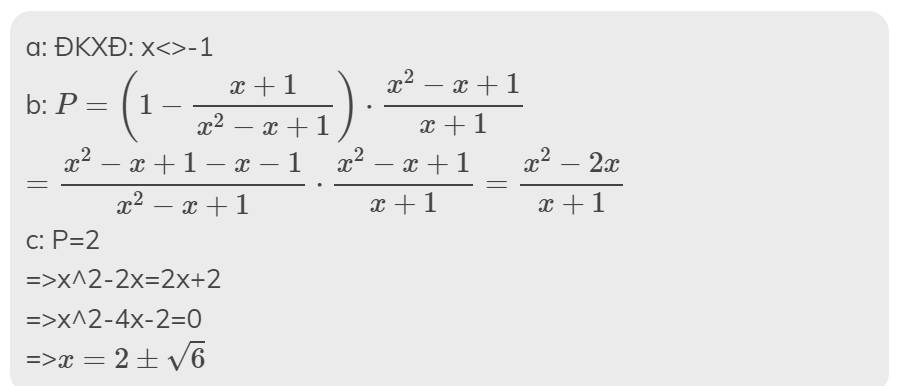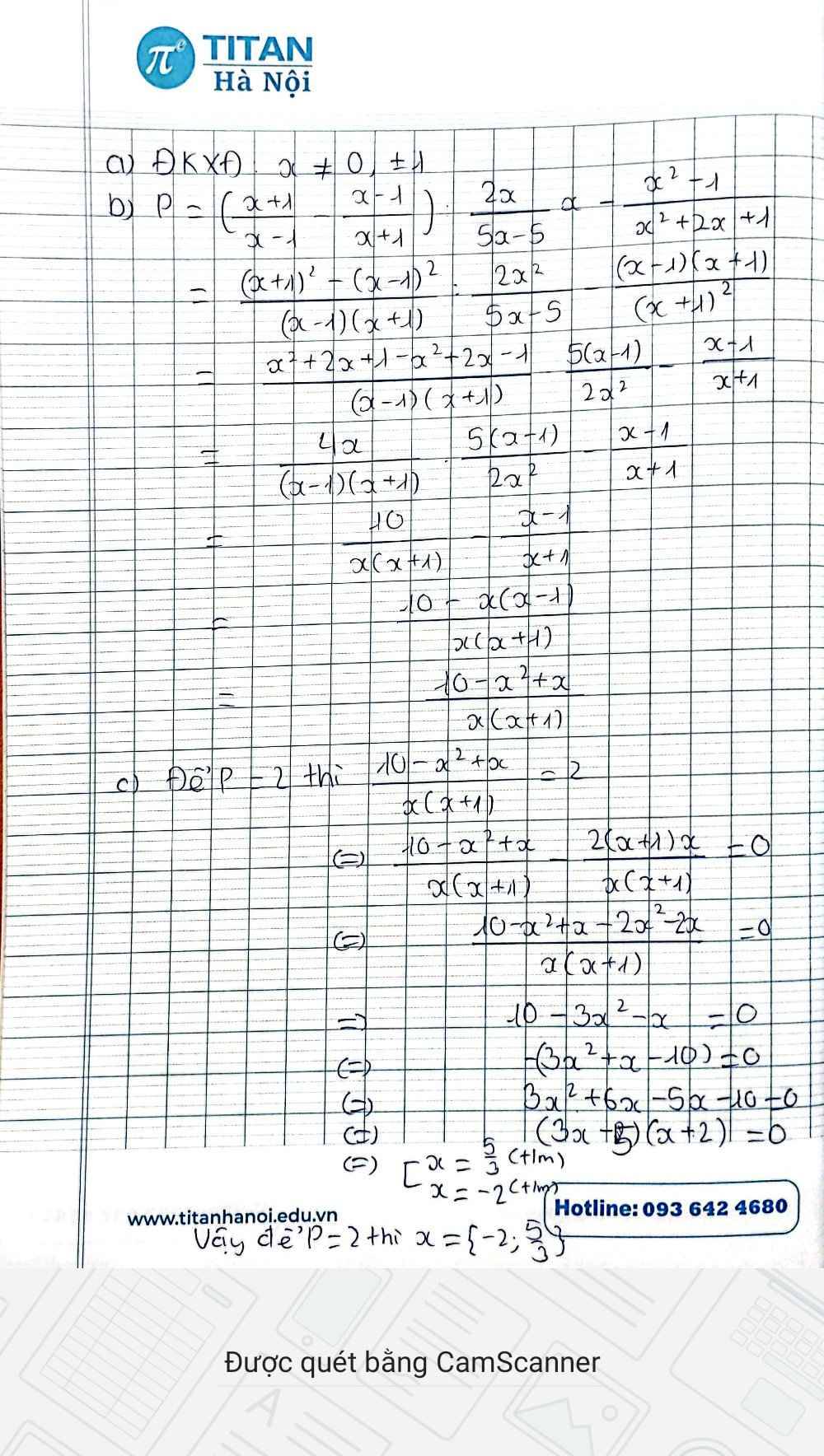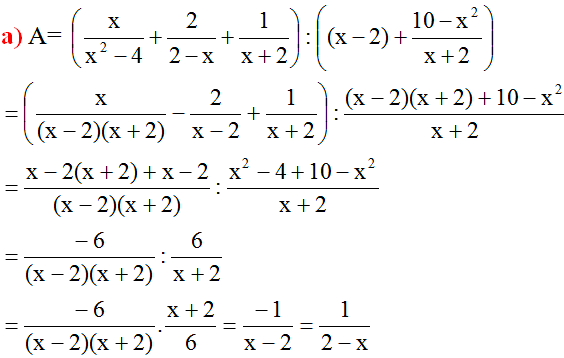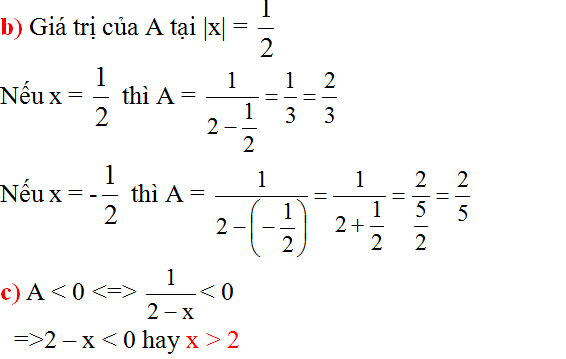Hãy nhập câu hỏi của bạn vào đây, nếu là tài khoản VIP, bạn sẽ được ưu tiên trả lời.

a: ĐKXĐ: x<>-1
b: \(P=\left(1-\dfrac{x+1}{x^2-x+1}\right)\cdot\dfrac{x^2-x+1}{x+1}\)
\(=\dfrac{x^2-x+1-x-1}{x^2-x+1}\cdot\dfrac{x^2-x+1}{x+1}=\dfrac{x^2-2x}{x+1}\)
c: P=2
=>x^2-2x=2x+2
=>x^2-4x-2=0
=>\(x=2\pm\sqrt{6}\)

a,ĐK: \(\hept{\begin{cases}x\ne0\\x\ne\pm3\end{cases}}\)
b, \(A=\left(\frac{9}{x\left(x-3\right)\left(x+3\right)}+\frac{1}{x+3}\right):\left(\frac{x-3}{x\left(x+3\right)}-\frac{x}{3\left(x+3\right)}\right)\)
\(=\frac{9+x\left(x-3\right)}{x\left(x-3\right)\left(x+3\right)}:\frac{3\left(x-3\right)-x^2}{3x\left(x+3\right)}\)
\(=\frac{x^2-3x+9}{x\left(x-3\right)\left(x+3\right)}.\frac{3x\left(x+3\right)}{-x^2+3x-9}=\frac{-3}{x-3}\)
c, Với x = 4 thỏa mãn ĐKXĐ thì
\(A=\frac{-3}{4-3}=-3\)
d, \(A\in Z\Rightarrow-3⋮\left(x-3\right)\)
\(\Rightarrow x-3\inƯ\left(-3\right)=\left\{-3;-1;1;3\right\}\Rightarrow x\in\left\{0;2;4;6\right\}\)
Mà \(x\ne0\Rightarrow x\in\left\{2;4;6\right\}\)

Lời giải của bạn Nhật Linh đúng rồi, tuy nhiên cần thêm điều kiện để A có nghĩa: \(x\ne\pm2\)

a) \(\left(\dfrac{x}{x^2-4}+\dfrac{2}{2-x}+\dfrac{1}{x+2}\right):\left(x-2+\dfrac{10-x^2}{x+2}\right)\)
\(\Leftrightarrow\left(\dfrac{x-2x-4+x-2}{x^2-4}\right):\left(\dfrac{x^2-4+10-x^2}{x+2}\right)\)
\(\Leftrightarrow\left(\dfrac{-6}{x^2-4}\right).\left(\dfrac{x+2}{6}\right)\Leftrightarrow\dfrac{1}{2-x}\)
b) với \(x^2=2x\Leftrightarrow x^2-2x+1-1=0\)
\(\Leftrightarrow\left(x-1\right)^2=1\Leftrightarrow\left[{}\begin{matrix}x-1=1\\x-1=-1\end{matrix}\right.\Leftrightarrow\left[{}\begin{matrix}x=2\left(KTM\right)\\x=0\left(TM\right)\end{matrix}\right.\)
Vậy với x=0 thì A = \(\dfrac{1}{2}\)
c) A nhận giá trị nguyên dương tức \(\dfrac{1}{2-x}\) nhận giá trị dương
Để A nhận giá trị dương thì
\(2-x\inƯ_{\left(1\right)}\)\(\Leftrightarrow2-x\in\left\{-1;1\right\}\)
| \(2-x\) | -1(loại) | 1 |
| \(x\) | 3(loại) | 1 |
Vậy x=1 thì A nhận giá trị dương



